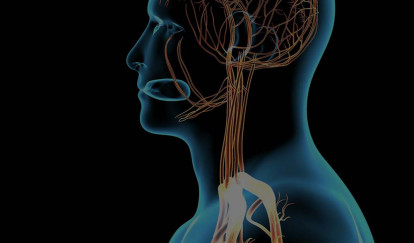
Share This Article
Nerves connect the brain to the rest of the body and allow for motion and feeling. They are delicate but well-protected underneath the skin. However, injuries that cause damage to the nerves are common.
When this happens, the victim is likely to exhibit nerve damage symptoms, which may be anywhere from mildly debilitating to fully disabling. Understanding the symptoms is important because it’s possible for nerve damage to worsen without timely medical treatment.
What Kinds of Injuries Can Lead to Nerve Damage?
Various types of injuries can lead to nerve damage. The nature of that damage will depend on the specific type of injury that occurred.
Lacerations and Cuts
Lacerations and cuts can sever nerves if the wounds are deep enough. In contexts where sharp tools or objects are present, such as in kitchens or at construction worksites, lacerations and cuts are common and often lead to nerve damage. Laceration and cut injuries also occur in accidents involving extreme force and trauma, such as car and motorcycle crashes.
Compression Injuries
Compression injuries damage nerves by pinching or smashing them with surrounding tissue, which may be soft tissue or harder muscle and bone. Even the slightest bit of nerve compression can cause significant nerve dysfunction and pain. Common accidents that lead to compressed nerves include:
- Car crashes
- Sports injuries that cause swelling
- Slip and fall accidents
- Falls from high places
Compression injuries caused by defective products may also cause nerve damage through compression.
Stretching Injuries
The nerves suffer when parts of the body are stretched past their limits, which typically occurs in violent accidents or in contact sports. Sudden motions and extreme force lead to injurious stretching that eventually causes damage, which is irreversible in some cases.
Burns
Burns are capable of damaging and destroying nerves when they are of the third degree. Third-degree burns destroy the top layers of the skin and affect tissue, muscle, and nerves. In many instances, nerve damage is so extensive that the nerve dies, and the victim feels no pain or any other sensation in the injured body part.
Warning Signs of Possible Nerve Damage
Nerve damage is often a secondary injury to more serious trauma, such as an amputation and/or a severe burn. In many cases, damage to the nerves escapes detection initially as victims focus on the more visible aspects of their injuries.
However, failing to recognize and treat nerve damage early can lead to significant exacerbation of the nerve damage and permanent disability. If you are wondering, “How do I know if I have nerve damage,” you’re not alone. Some common nerve damage symptoms to look out for after an injury include:
- Tingling or numbness, especially in the hands or feet
- A feeling of compression on your body
- Weakness in the muscles of your arms and legs
- Constantly dropping objects
- Sharp or shooting pain in your hands, feet, legs, or arms
- A buzzing sensation
If you notice any of these symptoms after an accident or other injurious incident, it is likely that you have suffered some level of nerve damage.
You should strongly consider seeing a medical professional to have your symptoms evaluated. If the nerve damage came about due to an injurious act of another or through a work accident, you may be entitled to seek significant compensation for your injury.
Filing a Claim for Compensation After Nerve Damage From an Accident
In Virginia, there are two principal ways of getting compensation for nerve damage after injury: with a personal injury claim (if your accident was caused by a third party) or through workers’ compensation (if your accident happened at work). If your nerve damage occurred while on the job, you typically cannot pursue a personal injury case and will probably be required to find relief in Virginia’s workers’ compensation benefits.
However, if you were injured outside of work by someone else, you can seek full damages through a personal injury lawsuit to cover your losses. Full compensation for personal injuries caused by others typically includes:
- Coverage of medical care and treatment
- Lost wages replacement
- Compensation for the cost of medical equipment
- Compensation for pain and suffering
- Compensation for other intangible harms, such as loss of ability to enjoy life
You may even be entitled to punitive damages if the party that harmed you behaved with willful and wanton negligence.
Getting Started
Getting started only requires you to reach out to an experienced personal injury lawyer for a free consultation. During this meeting, your attorney will evaluate your case and explain your options. If they take you on as a client, they will handle almost all of the logistics related to pursuing compensation so that you can focus on healing.
What Is the Time Limit for Filing a Personal Injury Claim in Virginia?
In Virginia, victims suffering from personal injuries, including nerve damage, generally have two years to seek compensation for their injuries.
How Much Is a Nerve Damage Claim Worth?
Each person with nerve damage has unique losses. The damages reflect many factors that vary by case. For example, an injury victim with a high-paying job will typically get more compensation for their losses than the same type of victim making minimum wage, even if all the surrounding circumstances are the same.
How Long Will a Claim Based on Nerve Damage Take?
A nerve damage claim can take anywhere from a few weeks to many months and longer. Workers’ comp claims are typically resolved the fastest. However, complexities sometimes arise that make more time necessary.
For personal injury cases, such as car accidents and slip and falls, the time it takes to resolve claims also depends on the complexities involved. That said, Commonwealth Law Group works diligently to get clients’ cases resolved promptly and effectively.
Get Help From an Experienced Personal Injury Lawyer
Nerve damage can upend anyone’s life through chronic pain, tremors, disability, and other negative consequences. If you or someone you love is experiencing the effects of nerve damage caused by someone else or by a work accident, Commonwealth Law Group can potentially help you recover compensation to address the setbacks you are facing. Call for a free consultation with an injury lawyer who cares.
If you have been injured at work or through the negligence of another individual or entity, contact us at (804) 999-9999 or or use the form below to connect with our legal team. We will fight to get you the justice you deserve.
